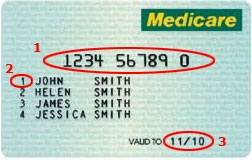The deltoid muscle is a large triangular muscle located on the outside of the shoulder. It consists of three parts: the anterior deltoid, the lateral deltoid, and the posterior deltoid.
It is responsible for key shoulder movements, including lifting the arm, rotating the shoulder, and
moving the arm forward and backward.
Due to its importance in shoulder movement, injury to the deltoid muscle can be uncomfortable and
in some cases can impact your quality of life.
Whether you’re dealing with anterior deltoid pain, shoulder pain at night, or similar conditions, this
patient guide will help you understand the world of deltoid muscle pain and find good solutions.
Causes of Deltoid Muscle Pain
Deltoid muscle pain can arise from a number of factors, each with its own set of triggers and symptoms. Some common causes of deltoid muscle pain include:
Muscle strain: This occurs when the muscle fibers are stretched or torn due to overexertion, sudden movements, or improper lifting techniques. This can lead to localized pain and discomfort in the deltoid muscle.
Shoulder pain and rotator cuff issues: Deltoid muscle pain can also be linked to underlying shoulder issues, such as rotator cuff problems. The rotator cuff is a group of muscles and tendons that stabilise the shoulder joint and assist in your shoulder movement. Inflammation or tears in the rotator cuff can also cause pain that radiates to the deltoid area of the shoulder.
Deltoid Pain at Night: Why Does it Happen?
It is common for people suffering deltoid issues to experience shoulder pain at night. There are several reasons why deltoid pain may occur at night:
Your Sleeping Position: Sleeping on your side with your arm positioned under your head or pillow can compress the deltoid muscle and lead to discomfort.
Inflammation in the shoulder: If you have an underlying shoulder issue like rotator cuff inflammation, this pain may worsen when you lie down due to increased blood flow to the area.
Posture problems: Poor posture throughout the day can contribute to muscle imbalances, which can lead to night pain around the deltoid muscle.
Pain that disrupts your sleep is a cause for concern and should be looked at by a medical professional.
What Types of Shoulder Pain Are Similar to Deltoid Pain?
It is not uncommon for deltoid pain be mistaken for several other types of shoulder pain. This usually occurs due their proximity and interconnectedness to other structures within and around the shoulder area. These include:
Rotator cuff pain: Inflammation or tears in the rotator cuff can cause pain that radiates to the deltoid area.
Bursitis: Inflammation of the bursa sac in the shoulder can lead to pain that feels similar to deltoid pain.
Subacromial impingement: When the space between the acromion (roof of the shoulder) and the rotator cuff tendons narrows, this can lead to pain that radiates to the deltoid muscle.
Preventing Deltoid Pain
Taking steps to prevent deltoid muscle pain will improve your shoulder function and overall shoulder health:
Maintain good posture: Practicing good posture throughout the day (especially when you’re at work) can help prevent muscle imbalances and strain.
Warm-up: Before commencing in physical activity or exercise, make sure to properly warm up the muscles around your shoulder to prevent strains and injuries.
Proper lifting techniques: When lifting objects, remind yourself to use your legs and core muscles rather than solely relying on your shoulders.
Stay active: Try to engage in exercises that target your shoulder muscles – this can help maintain your strength and flexibility about the shoulder.
Exercises for Deltoid Muscle Pain
Doing exercises that target the shoulder can help treat deltoid muscle pain and improve shoulder health and function:
Shoulder blade: Sit or stand with good posture; now gently squeeze your shoulder blades together and hold for a few seconds. Repeat this several times. This is a key exercise to understand how to begin to control your shoulder blade.
Anterior deltoid: This is a very important muscle in shoulder function. Gently stretch the anterior deltoid by bringing one arm across your body and using the opposite hand to gently push the arm further. Hold for 30 seconds on each side and repeat.
Wall angles: Stand against a wall with your back and arms against it; now slowly slide your arms up and down the wall, focusing on keeping your shoulders and upper arms in contact with the wall.
Non-Surgical Deltoid Pain Relief
If you’re experiencing deltoid muscle pain, there are great non-surgical approaches that can provide relief:
Rest and Ice: Resting the shoulder and applying ice can help reduce inflammation and minimise pain.
Physical Therapy: A good physiotherapist can guide you through exercises that strengthen the shoulder muscles and work on improving your posture – this will lead to improvement in your pain.
Medications: Over-the-counter pain tablets and anti-inflammatory medications may provide temporary pain relief.
Surgery for Deltoid Pain
In some cases, when non-surgical treatments do not provide adequate relief, surgery may be required. If you have tried conservative treatments without success, it’s recommended you see a shoulder specialist (shoulder surgeon) for accurate diagnosis and a treatment plan. This may mean that you need to obtain an MRI scan and X-rays.
The surgical treatment options depend on the underlying cause of the deltoid pain; a shoulder surgeon such as Dr. Sushil Pant can recommend the appropriate surgical treatment based on your individual diagnosis. It is important to remember that if you’ve had shoulder pain for some time and are not responding to non-surgical treatment then you should commence the pathway of obtaining an accurate diagnosis – this is the most common problem that Dr Pant sees in patients who are not responding to conservative treatment and report ongoing shoulder pain. It is not uncommon that a good shoulder surgeon is able to diagnose shoulder pain beyond what the MRI report suggests.





